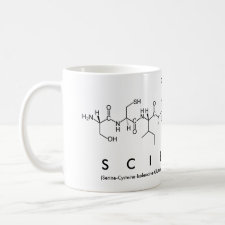
Authors: Yu P, Sun QL, Li JF, Tan ZJ, Yan YS, Li CX
Article Title: Magnetic imprinted nanomicrosphere attached to the surface of bacillus using miniemulsion polymerization for selective recognition of 2,4,6-trichlorophenol from aqueous solutions.
Publication date: 2015
Journal: Journal of Industrial and Engineering Chemistry
Volume: 29
Page numbers: 349-358.
DOI: 10.1016/j.jiec.2015.04.014
Alternative URL: http://www.sciencedirect.com/science/article/pii/S1226086X15001434
Abstract: In the work, we reported an effective method for the preparation of surface molecularly imprinted polymers based on bacillus as substrate material with superparamagnetic property through miniemulsion polymerization. Then, the obtained magnetic surface molecularly imprinted polymers (MMIPs) were evaluated as adsorbents for selective recognition 2,4,6-trichlorophenol (2,4,6-TCP) from aqueous medium. The resulting MMIPs were characterized by several techniques including FT-IR, SEM, TEM, Raman, XRD, VSM and TGA. The results demonstrated rod-shaped MMIPs was covered with imprinted layer, and exhibited chemical stability and good magnetic sensitivity. Batch mode of binding studies were carried out to determine the equilibrium isotherm, kinetics, selectivity adsorption and regeneration of MMIPs toward 2,4,6-TCP. The results indicated that the selective adsorption behaviors of MMIPs were well described by the Langmuir isotherm model and the pseudo-second-order kinetics model. The specific adsorption capacity of MMIPs was 45.16 mg g-1 at 298 K, which was 2.15 times higher than that of magnetic non-imprinted polymers (MNIPs). The selective recognition studies demonstrated the outstanding affinity and selectivity toward 2,4,6-TCP in the presence of competitive phenols. The regeneration study showed excellent adsorption capacity even after five regeneration cycles. In addition, MMIPs were successfully applied to the extraction of 2,4,6-TCP from milk sample
Template and target information: 2,4,6-trichlorophenol, 2,4,6-TCP
Author keywords: Molecularly imprinted polymers, 2,4,6-TCP, Bacillus, Specific adsorption, Miniemulsion polymerization



Join the Society for Molecular Imprinting

New items RSS feed
Sign-up for e-mail updates:
Choose between receiving an occasional newsletter or more frequent e-mail alerts.
Click here to go to the sign-up page.
Is your name elemental or peptidic? Enter your name and find out by clicking either of the buttons below!
Other products you may like:
 MIPdatabase
MIPdatabase









